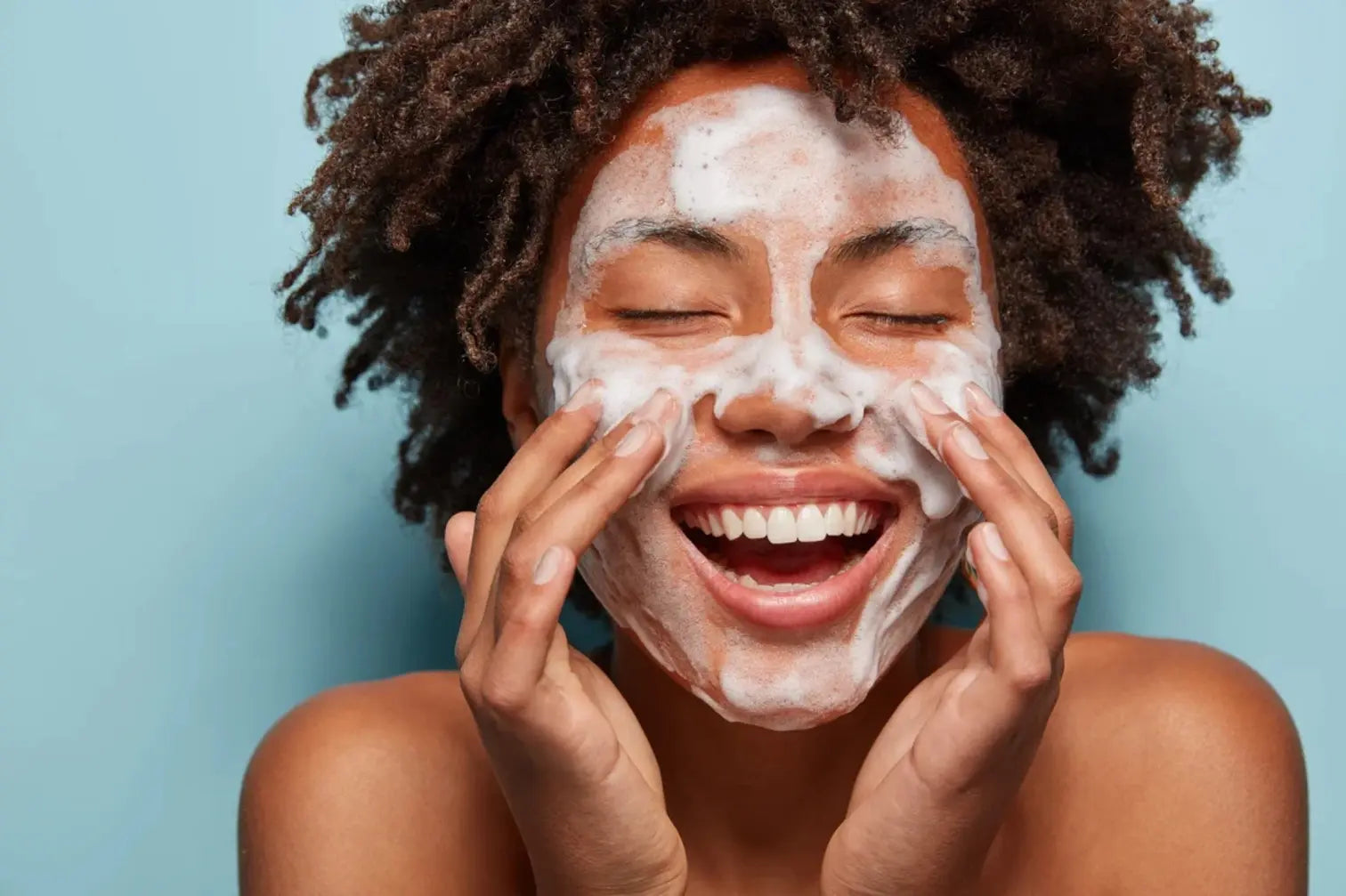05
How do I properly cleanse my face?
It might seem straightforward, but there is actually a right way to cleanse your skin to remove maximum impurities without introducing new bacteria.
#1 Wash your hands: Hands are crawling with bacteria. Give them a good wash before you cleanse your face to avoid introducing any unwanted germs to your skin.
#2 Double cleanse, optional: If you choose to double cleanse, use your first cleanser to remove sunscreen and makeup. Then, follow with your second cleanser.
#3 Massage the skin: To encourage healthy circulation and ensure that the cleanser reaches every inch of your face, massage the product into your skin for at least 60 seconds, paying extra attention to the folds of the face like the sides of the nose.
#4 Rinse and dry: Splash your face with lukewarm water to remove the cleanser. Alternatively, you can use a damp washcloth to gently wipe away the facial cleanser and remove excess dead skin. Just be sure to use gentle pressure–over-exfoliating weakens the skin barrier and increases sensitivity. Instead of rubbing your skin with a bath towel when you’re done, gently pat your face dry with a clean washcloth.




